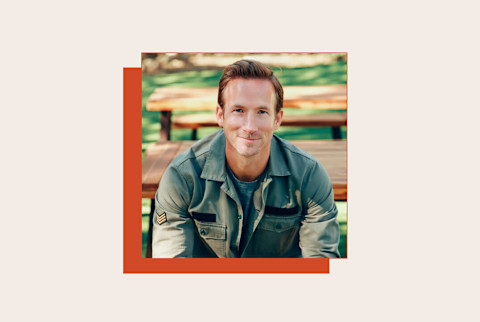The Science Of Simplicity: Why We Need To Stop Overcomplicating Health

Once a top hedge fund manager on Wall Street, Jason Karp's life was defined by speed, stress, and success. But in his early 20s, things took a sharp turn. Despite thriving professionally, his health was deteriorating. Doctors handed him grim diagnoses: multiple autoimmune conditions and a degenerative eye disease that would supposedly leave him blind by 30.
Their solution? Lifelong medication and a resigned acceptance of decline.
Karp chose a different path.
A wake-up call
On the mindbodygreen podcast, Karp explains that what started as a desperate attempt to regain his health evolved into a deep investigation into the human condition—how we live, eat, and connect to the world around us. He immersed himself in ancestral health practices, began studying long-living populations (like those in the Blue Zones), and started making changes to his lifestyle.
He moved away from processed food, switched to whole, natural ingredients, and began questioning a medical system that often overlooks root-cause healing. Over time, his symptoms disappeared. Even his "incurable" eye condition began to reverse.
From self-healing to helping others
That transformation was more than personal. It sparked a mission: make healthy living actually accessible. Together with his wife and brother-in-law, Karp co-founded Hu Kitchen—a health-forward restaurant and snack brand that gained cult status for its no-compromise stance on ingredients. Think: no seed oils, no preservatives, just nutrient-dense, real food that tastes incredible.
He eventually sold Hu, but Karp wasn't done. With HumanCo, his latest venture, he's scaling that vision even further—building brands that prioritize human health, planet health, and transparency.
Health doesn't have to be complicated
If Karp's personal healing arc has taught him anything, it's that wellness doesn't require expensive tools, fancy biohacks, or robotic discipline. In fact, that approach might be doing more harm than good.
"I became neurotic about my health," he admits, reflecting on a phase where he obsessed over his sleep score, bedtime, and the perfect diet. "We've overcomplicated what it takes to live a healthier life."
Instead, Karp encourages a return to simplicity: sunlight, real food, joyful movement, and meaningful connection. "Most of what you need to live well is actually free," he says.
The silent cause of illness
In Karp's eyes, one of the most overlooked threats to our health isn't something we eat or inhale—it's something we carry. Chronic stress, he says, is the hidden driver behind many of today's most common diseases.
From persistently elevated cortisol levels to disrupted sleep and prolonged social isolation, the physiological toll of stress can quietly chip away at well-being. He explains that stress can magnify the impact of other unhealthy habits and accelerate disease progression.
That's why Karp champions the fundamentals: regular movement, quality rest, natural light, and, most critically, human connection. Health, he argues, isn't built solely in the kitchen or the gym—but in relationships, community, and a sense of belonging.
He often references the widely cited study that equates chronic loneliness to smoking 15 cigarettes a day. "Being with each other has incredible health benefits," Karp says. Love, purpose, and shared experiences aren't just nice-to-haves—they're biological necessities. In a world that often glorifies hustle and independence, he reminds us that healing starts with connection.
A broken food system & the case for common sense
One of Karp's most impassioned critiques takes aim at the U.S. food regulatory system—a system, he argues, that prioritizes profit and convenience over public health. At the heart of his concern is the GRAS policy—"Generally Recognized As Safe"—which allows food companies to self-certify new ingredients as safe without independent FDA oversight.
"It's a travesty," he says bluntly. "There's a long list of substances—from Red Dye No. 3 to asbestos—that were once stamped 'safe' until we discovered the long-term damage." In his view, this loophole gives companies free rein to introduce synthetic additives into the food supply, often without rigorous safety testing or long-term studies.
Karp contrasts this with the European model, where the approach is far more cautious. "Over there, it's guilty until proven innocent. Here, it's innocent until proven guilty," he explains. The result? Multinational food companies often produce safer, cleaner versions of their products for European markets—formulas that exclude artificial dyes, preservatives, and additives banned overseas. But in the U.S., those same products are often made with cheaper, potentially harmful ingredients.
This double standard is what drives one of Karp's campaigns: eliminating artificial dyes from children's foods. For him, it's a matter of basic common sense: If cleaner, safer versions exist, why wouldn't we demand the same for our children?
The takeaway
Karp reminds us that real health isn't complicated. You don't need cutting-edge tools or endless wellness trends to reclaim your health. You need to live like a human—connected, nourished, moving, and in sync with nature.
